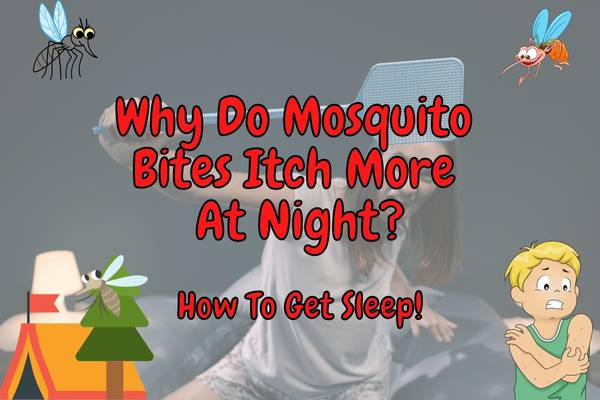For most people, mosquito bites are more than just a nuisance; they’re incredibly itchy! And for some reason, this itchiness seems to be amplified at night. There are a few theories as to why this might be the case.
The reason why mosquito bites itch more at night is mainly due to the fact that we’re more aware of mosquito bites when we’re trying to sleep. At night, when we have less to focus on, every little bite feels like an unbearable itch.
Our body temperature tends to be lower at night, and this change may cause our immune system to produce more histamine – the same substance that is responsible for making mosquito bites itch. In addition, our immune system is more active in the early morning hours just before we wake up!
Whatever the reason, there’s no denying that nightly mosquito bites can be a real pain – literally! So let’s get into the reasons why they might be more annoying at night and what you can do to get some relief!
Why Do Mosquito’s Bites Itch?
For many of us, mosquito bites are nothing more than an annoyance. They itch, they swell, and they can be difficult to scratch without causing further irritation. But have you ever wondered why mosquito bites itch in the first place?
As it turns out, there are two main reasons for the itchiness associated with mosquito bites. Firstly, when a mosquito punctures your skin, it injects a small amount of saliva into the wound.
This saliva contains substances that help to prevent the blood from clotting, making it easier for the mosquito to feed.
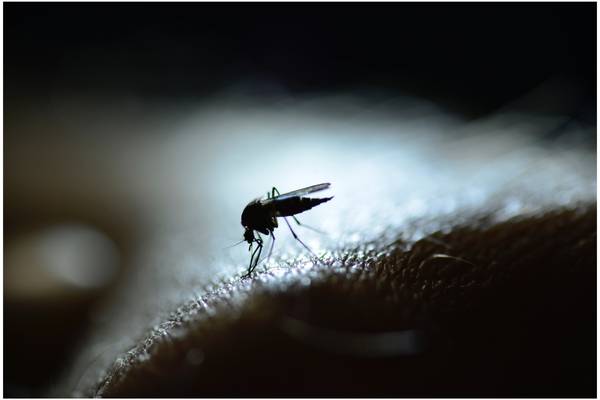
However, these same substances can also cause a reaction similar to an allergic reaction in some people, leading to the characteristic itching and swelling.
The second reason for the itchiness is more complex. It has to do with the body’s immune system. When the body detects a foreign invader, such as bacteria or viruses, it triggers an immune response in an attempt to fight off the infection.
One of the ways that the immune system does this is by releasing histamines into the bloodstream. Histamines cause the blood vessels to dilate and increase blood flow to the area of infection. They also cause itching and swelling, which helps to spread the alert to other parts of the body so that they create an immune response.
Why Do Mosquito Bites Itch More On Your Feet?
When you get bitten by a mosquito, you expect the itch. But why does it seem to be worse when the bite is on your foot? There are a few reasons for this. First of all, your feet have more sweat glands than other parts of your body so they will attract mosquitoes more easily.
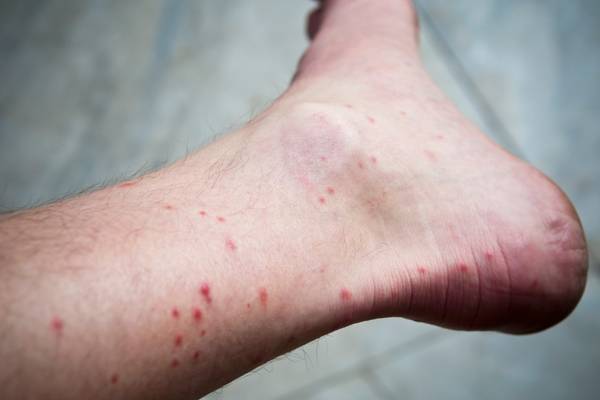
This means that there’s more moisture for the mosquito to feast on. In addition, the skin on your feet is thinner than on other parts of your body. This makes it easier for the mosquito to penetrate the skin and leave behind its saliva.
The more sensitive skin also means that the mosquito bites on your feet tend to itch more!
And finally, your feet are usually covered up during the day, which means that bites on your feet are more likely to go unnoticed until they’ve had a chance to swell and itch.
So next time you find yourself scratching a mosquito bite on your foot, remember that it’s not just your imagination- there’s a reason why those bites seem to itch more.
Why Do Mosquitoes Bite More At Night?
First, mosquitoes are attracted to the carbon dioxide that we exhale. Since we do not move and we breathe more consistently at night, they are able to sense our presence more easily.
In addition to the carbon dioxide we exhale and the chemicals in our sweat, mosquitoes are also attracted to the heat of our bodies.
As we wear fewer clothes and are not moving out of place, it is easy for a mosquito to locate us at night!
They use this cue to locate their prey, and this is why we tend to be more likely to be bitten at night.
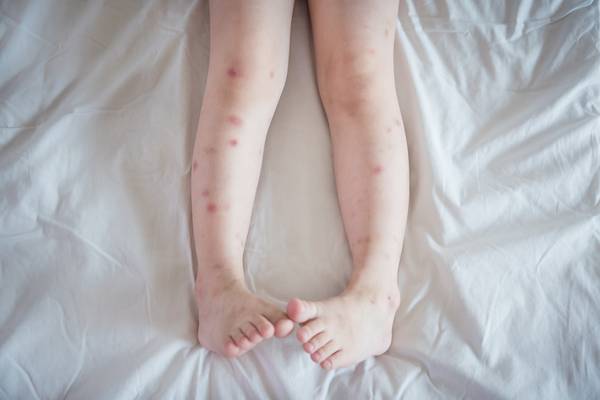
When we are asleep, our bodies are cooler and therefore more attractive to mosquitoes.
Additionally, because they are active at dawn and dusk when it is cooler, we are more likely to be bitten then.
To avoid being bitten by mosquitoes, it is best to wear clothing that covers your skin and to use mosquito nets or repellents – especially if you sleep outdoors!
Finally, mosquitoes are also attracted to certain chemicals that are present in sweat. So, if you’ve been working out or otherwise sweating a lot during the day, you may be more likely to be bitten at night.
What to Do If I Can’t Sleep Because of Mosquito Bites?
If you’re one of the many people who are struggling to get a good night’s sleep because of mosquito bites, there are a few things you can do to ease the itch and get some much-needed rest.

First, take a lukewarm bath or shower and gently pat the affected area dry. Next, apply a cold compress or ice pack to the bite for a few minutes to help reduce swelling.
You can also try dabbing on a bit of calamine lotion or hydrocortisone cream to help soothe the itch.
If those methods don’t work, try taking an antihistamine like diphenhydramine before bedtime will help reduce the itching and swelling.
Just be sure to read the label carefully and follow the directions. With a little trial and error, you should be able to find a method that helps you get some relief so you can get a good night’s sleep.
However, the best way to treat mosquito bites is to prevent them in the first place. Some of the steps you can take to prevent mosquito bites when you sleep are:
Use mosquito netting over your bed. This will create a barrier between you and the mosquitoes, so they won’t be able to bite you.
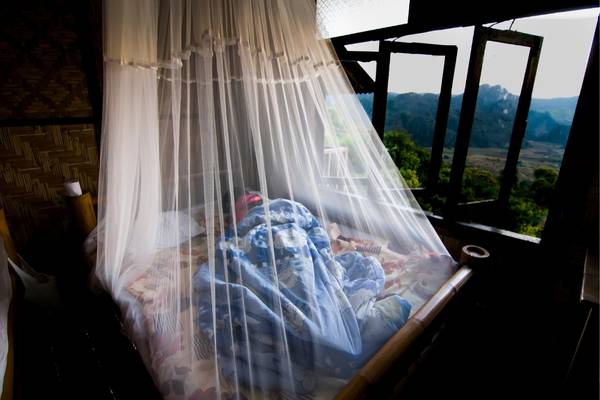
Keep your bedroom clean and free of clutter, as mosquitoes like to hide in dark corners and under beds.
Keep mosquitoes outside by making sure screens on windows and doors are intact and free of holes.
Run a fan in your room to create a breeze that will deter mosquitoes.
Try using citronella candles or incense sticks around your bedroom, as the scent will repel mosquitoes.
Reduce standing water both inside and outside of your home, where mosquitoes lay their eggs.
Wear long sleeves, pants, and socks, especially when outdoors to protect you from bites.
Use ultrasonic devices such as this one that emits sounds that only mosquitoes can hear and that will scare them away.
These are just some of the things you can try to keep mosquitoes out so you can get a proper night of sleep!
Conclusion
There is nothing worse than lying awake all night not being able to sleep because of an annoying mosquito bite!
There are many reasons why mosquito bites may itch more at night. One reason is that we are more aware of them when we are trying to sleep.
Another reason is that our body temperature tends to be lower at night and this change may cause our immune system to produce more histamine – the same substance that is responsible for making mosquito bites itch.
The immune system is also more active in the early hours, which will cause more itching early in the morning!
Whatever the reason, I hope you find the tips given here useful for getting rid of mosquitoes and will enjoy being able to sleep for now.

